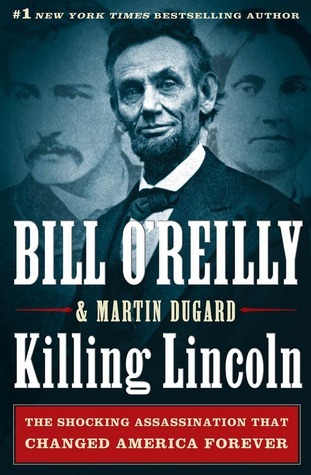Killing Lincoln Book Summary
The Shocking Assassination that Changed America Forever
TL;DR
Killing Lincoln delves into the gripping events surrounding the assassination of President Abraham Lincoln, exploring the conspiracy, the assassin John Wilkes Booth, and the profound impact on America.
What is Killing Lincoln about
Killing Lincoln: The Shocking Assassination that Changed America Forever, written by Bill O'Reilly and Martin Dugard, is a historical narrative that meticulously recounts the events leading up to and following the assassination of President Abraham Lincoln. The book is divided into four parts, each detailing the context of the Civil War and the conspiracy that culminated in Lincoln's assassination by John Wilkes Booth. The authors weave together a thrilling story that not only captures the drama of that fateful night but also places it within the broader themes of patriotism, loyalty, and the violence that marked this tumultuous period in American history.
Killing Lincoln 8 Key Takeaways
The Civil War Context
The book emphasizes the brutality of the Civil War, providing insights into the societal and political climate that led to heightened tensions and ultimately to Lincoln's assassination.
The Conspiracy
O'Reilly and Dugard illustrate the complex conspiracy led by John Wilkes Booth, revealing the motivations and plans of the conspirators who sought to alter the course of American history.
Impact on America
The immediate aftermath of Lincoln's assassination had a profound impact on the nation, shaping public sentiment and the political landscape during Reconstruction.
Themes of Loyalty and Betrayal
The narrative explores themes such as loyalty and betrayal, showcasing how personal grievances and political ideologies intertwined to fuel Booth's actions.
The Manhunt for Booth
Following the assassination, the book details the intense manhunt for Booth, highlighting the challenges faced by law enforcement and the national response to the tragedy.
Cultural Repercussions
The assassination of Lincoln not only changed the political sphere but also had lasting cultural repercussions, influencing how Americans viewed their government and each other.
Legacy of Lincoln
Lincoln's death marked a pivotal moment in American history, leading to a reevaluation of his legacy and the continuation of his vision for the nation.
Juxtaposition of Violence and Peace
The narrative juxtaposes the violence of Booth's actions against Lincoln's desire for peace and reconciliation, highlighting the irony of the assassination.
Top Killing Lincoln Quotes
- "The assassination of Lincoln was not just a crime; it was a catastrophe for a nation trying to heal."
- "In a flash, the hopes for a peaceful reconciliation were extinguished on that fateful night."
Who should read Killing Lincoln?
Killing Lincoln is ideal for history buffs, students, and anyone interested in American politics and civil rights. Readers will gain a deeper understanding of the events that shaped the nation and the lasting impact of Lincoln's legacy on contemporary America.
Killing Lincoln Best Reviews
- "Killing Lincoln is a riveting account that brings history to life with vivid storytelling and thorough research." - The New York Times
- "O'Reilly and Dugard have crafted a compelling narrative that is both informative and engaging, making it a must-read for history enthusiasts." - USA Today
People also liked these summaries
Killing Lincoln FAQs
What are the main themes in Killing Lincoln?
The main themes include patriotism, loyalty, jealousy, and revenge, as well as the interplay of crime and punishment, all set against the backdrop of the Civil War.
How is Killing Lincoln structured?
The book is divided into four parts, each focusing on different aspects of Lincoln's life, the Civil War, the conspiracy to assassinate him, and the immediate aftermath of the assassination.
